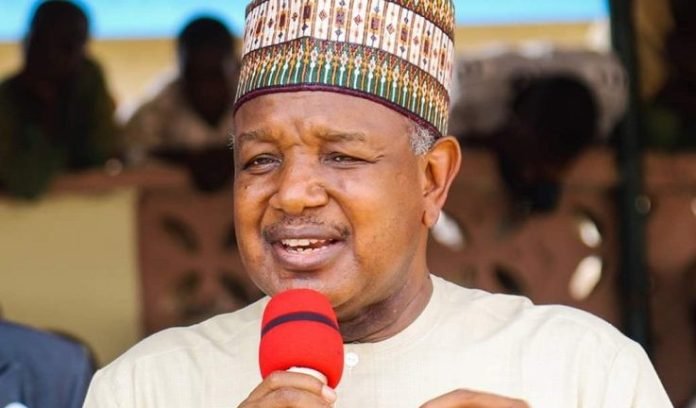The Nigerian Minister of Budget and Economic Planning, Senator Abubakar Bagudu, has revealed that the recent nationwide #EndBadGovernance protests, far from being in vain, have compelled the federal government to respond more to Nigerians’ demands.
The revelation came during his speech at the “National Economic Dialogue on Nigeria’s Economic Future: 25 Years of Democracy and Beyond”, organized by the Nigerian Economic Summit Group on Wednesday.
Bagudu said that while the nation’s current challenges did not necessarily stem from the current administrations, President Bola Tinubu has chosen not to focus on assigning blame to the past.
Bagudu highlighted that the government is actively working to improve the country’s situation and has taken the protests as a clear signal that more needs to be done quickly. “We have learned that even the current protests have made us listen more. Whatever we are doing, we have taken the message that we need to do more, we need to do better, and we need to do it in a hurry.”
The minister also noted that despite the efforts of previous and current governments over the last 25 years, Nigeria still has significant progress to make.
“So, what do we do? It’s not because of anyone’s failing, but that is our reality. We have yet to achieve the income per capita that we require, and it’s not for lack of trying; it’s not for lack of success. With the transformation in the telecommunication sector, at some point, we even reversed our gross domestic product, GDP.
“Our population has grown from 119 million in 1999 to about 230 million, almost double. Still, our oil production, for example, 2.2 million barrels in 1999, is now rather than 4 million, according to the doubling of our population, which is still under 1.5 million, reflecting cumulative years of under-investment in the sector.
“So, our reality is that we are not where we want to be, and our constitution needs to be more transparent about what we should do. Chapter 2 of our Constitution, the Fundamental Objectives and Directive Principles of State Policy, clearly discusses the country’s political objectives. The economic objectives are also obvious—what kind of economy we want to run.
“Chapter two of the Constitution spells out citizens’ duties. The chapter says that all persons in authority, legislative, executive, and judicial, at all levels of government, have the primary mandate to ensure the achievement of those fundamental objectives in Chapter 2.
“So, the constitution—maybe we can interrogate it and make it better—provides a starting point. Agenda 2050 reflects those objectives. We want a nation that includes all. We want a higher per capita by the year 2050. We want to ensure that we invest not less than $100 billion annually.
“But if our experience in the last 25 years should serve us as a guide, we sometimes know how difficult it is because you have to make choices that are both pleasant and unpleasant to be able to mobilize capital, private and borrowed, to support our aspiration.”
Comment, Like 👍, share this article, and Follow us on our social media handles.







